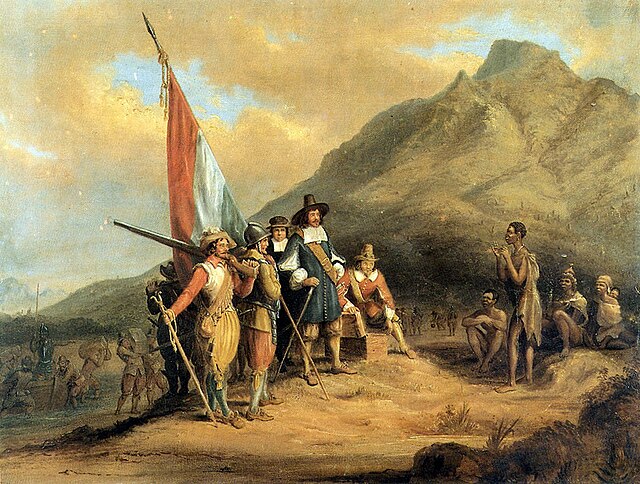South Africa is a Christian majority nation with Islam being a minority religion, practised by roughly 1.6% of the total population. Islam in South Africa has grown in three different phases. The first phase brought the earliest Muslims as part of the involuntary migration of slaves, artisans, political prisoners, and political exiles from the Dutch East Indies to the Cape Colony from 1652 to 1800. The second phase was the arrival of indentured labourers from British India to work in the sugar-cane fields in Natal from 1860 to 1911. Of the approximately 176,000 Indians of all faiths who were transported to the Natal province, almost 7–10% of the first shipment were Muslims.
Islamic texts in the Nizamiye Mosque in Midrand
Mosque in Cape Town
The Auwal Mosque, oldest mosque in South Africa, constructed in 1794; 230 years ago (1794)[citation needed]
The Palm Tree Mosque, second oldest mosque in South Africa; building constructed in 1788 (236 years ago) (1788), and established as a mosque in 1807; 217 years ago (1807)[citation needed]
The Dutch Cape Colony was a Dutch United East India Company (VOC) colony in Southern Africa, centered on the Cape of Good Hope, from where it derived its name. The original colony and the successive states that the colony was incorporated into occupied much of modern South Africa. Between 1652 and 1691, it was a Commandment, and between 1691 and 1795, a Governorate of the VOC. Jan van Riebeeck established the colony as a re-supply and layover port for vessels of the VOC trading with Asia. The Cape came under VOC rule from 1652 to 1795 and from 1803 to 1806 was ruled by the Batavian Republic. Much to the dismay of the shareholders of the VOC, who focused primarily on making profits from the Asian trade, the colony rapidly expanded into a settler colony in the years after its founding.
Replica of an East Indiaman of the VOC/United East Indies Company
View of Table Bay with ships of the United East India Company (VOC), c. 1683
Painting of an account of the arrival of Jan van Riebeeck, by Charles Bell
Jan van Riebeeck



![The Auwal Mosque, oldest mosque in South Africa, constructed in 1794; 230 years ago (1794)[citation needed]](https://upload.wikimedia.org/wikipedia/commons/thumb/7/7a/Bo-Kaap_by_ArmAg_%2821%29.jpg/640px-Bo-Kaap_by_ArmAg_%2821%29.jpg)




